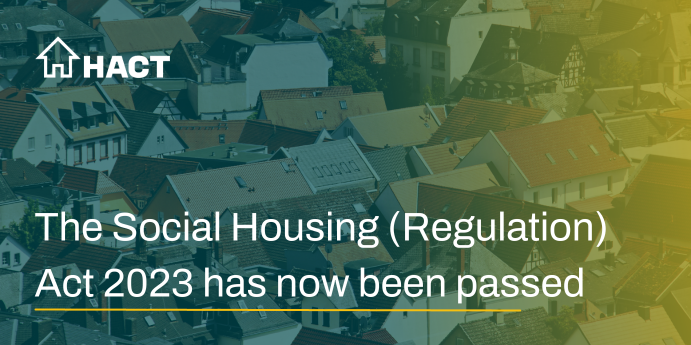If you have a question, query or idea, we’d love to hear from you.
As we recognise Black History Month, I look back at a remarkable series of events that took place in the Spring and Summer of 1981. Some refer to them as riots. I prefer the term social unrest. Many of those involved saw them as part of a long struggle by black and Asian people against racism, discrimination, inequality, poverty, and police brutality. A struggle that exploded onto the streets of several inner cities during that Summer.
Many housing associations were working on the “front line” as it was called. Because of this the unrest was the main issue at the National Housing Federation’s Conference that took place in late September 1981. The conference called upon the NHF to establish a working group to investigate the issues and because of my experience in leading anti-racist campaigns I was asked to be the Secretary. The long debate about racism in social housing had begun.
The working group toured the country seeking evidence. In 1982 it produced its first report titled Race and Housing, A Cause for Concern. The report identified that racism existed in lettings, employment, and services to tenants. It made a number of recommendations to overcome this, many of which are still relevant today. The debate on the report split the sector between those who acknowledged that racism existed and those who were in denial. I and many others took part in some very heated debates. One point of contention was the ethnic monitoring and target setting which we argued was necessary to identify the extent of the problem and to monitor progress. I note that it is still an issue for some.
Despite these debates, progress was made. Some would argue that by the 1990s the sector was performing better on all aspects of race and housing than it is today. Certainly, there were more high profile black and Asian leaders in housing than there are now. Why is this? Regulation played an important part and the leadership of the trade body. Since the 1990s efficiency drives have brought about a change in priorities and in my view the sector has ceased to regard race as an important issue and until recently became complacent. I have no doubt that the lack of regulation contributed to this.
Sometimes it is worth looking backwards to go forward. To ask the question what did we do then that it still worth considering now? Many of the initiatives at the time were partly funded by HACT. Probably the most successful of these were the positive action training programmes. These were set up nationally and locally. Many future black and Asian leaders benefitted from them.
Record keeping and monitoring was an essential part of progress. Not just in employment at all levels, but in lettings and the delivery of services. For some reason they appear to have fallen out of favour. I am pleased to see all the recent initiatives emphasise their importance once again and the need to be open and transparent in reporting. It will be interesting to see the results of the NHF’s current work on this.
A major issue for me was a policy of zero tolerance of the racial harassment of tenants. A recent case involving a large housing association and its repeated failure to protect a tenant shows this is still important. Zero tolerance in the workplace is also essential. None of us are immune from racist activity. Just before I retired, I dismissed three senior managers for circulating racist and sexist material which they claimed to be “office banter”
During the period of progress, many housing associations were still genuinely part of local communities. They had been established by them in 1960s and 1970s. This meant that they understood and were more responsive to local needs than is possible today, in an age of giant national associations. A number of local associations played a major role in establishing BME housing associations working with the black and Asian pioneers of the day. Charities were established to provide revenue funding for the embryonic organisations. Large houses were developed to meet the needs of extended families. The first sheltered schemes for black and Asian elders were built. Asian refuges for those escaping domestic violence were established. All in partnership with local groups and communities.
The use of local builders was encouraged through contract compliance schemes. Consultants and others who worked with housing associations were required to have equal opportunity policies. Apprenticeship schemes were set up targeting local people, especially those who would be now classed as “left behind” In Birmingham a regeneration partnership was set up involving all the housing groups operating in the Handsworth area. An indication that the sharing and the relinquishing of power was crucial for the success of such work.
A small example of this was the ANKA scheme in Birmingham. I was the chief executive of a local association based in Handsworth when I was approached by a local black councillor for help. She led a nursery project which used on of our buildings. She asked if we would gift it to the nursery to use as a local base for other community activities. I agreed and the building became a focal point for many black led activities. We had not just shared power, we had released it through a relatively small gesture at no real cost to the association.
The basis of this was trust. Trust based upon the fact that local people saw us as part of the community. Trust that was based upon action not words. This is still true today. To be successful, organisations and individuals need to be true to themselves. To recognise that racism still exists requires challenging and often uncomfortable discussions. You can’t just say you will be anti-racist in your approach, you need to recognise it exists, and act to overcome it. You need to understand white privilege if you are white and challenge yourself regularly. You need to be ready to share and eventually relinquish power. For power and control are at the heart of racism.
I sometimes appear to be a little cynical after 40 years of talk and progress that is glacially slow. My hope is in the next generation. Mine has failed. I urge you to learn from the past and move on. My time is done. You have the baton now. Use it wisely. Never give up or relax. Even after what appear to be small victories or personal gains. The struggle will continue, and the forces of reaction are strong. Even now there is evidence that they are getting stronger. We have waited long enough for real change. The time for action is now. As I look back over the last 40 years, I am reminded of James Baldwin’s words,
“What is it you want me to reconcile to? I was born here more than 60 years ago. I am not going to live another 60 years. You always told me it is going to take time. It’s taken my father’s time, my mother’s time, my uncle’s time, my brothers’ and my sisters’ time, my nieces and my nephew’s time. How much time do you want for your progress?”

 WATCH THE VIDEO
WATCH THE VIDEO


